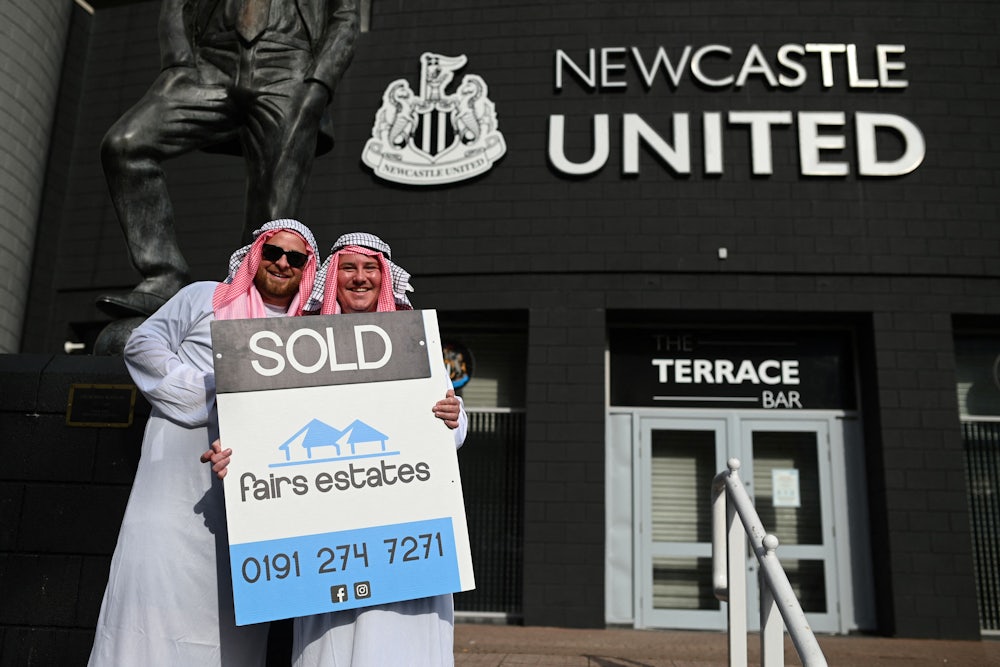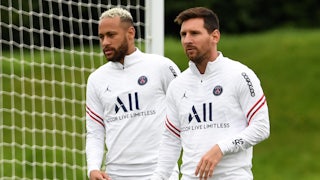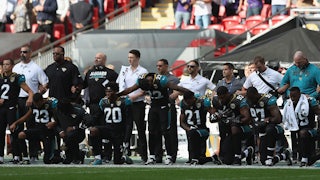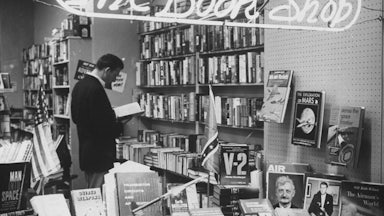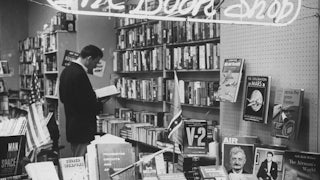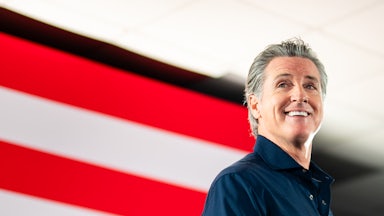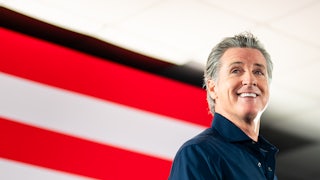Six months ago, the world’s wealthiest soccer clubs attempted to create a breakaway “Super League” in a cynical, if ultimately shambolic, attempt to restrict competition and line their already substantial pockets. The protests were instantaneous; there was chanting (though, to be fair, there always is), shirt burning, and signs. Some signs were furious, and some were funny, but one captured the zeitgeist: “Football: Created by the poor, stolen by the rich.” Initially unveiled in 2017 by Tunisian supporters who were protesting the Qatari-owned giant Paris Saint-Germain, a team that has spent hundreds of millions to collect some of global soccer’s biggest stars in an effort to launder its owner’s dismal human rights record, the slogan began appearing outside stadiums across Europe.
On one side, there were greedy and capricious owners who were gleefully destroying the world’s most popular sport in pursuit of money. On the other was, it seemed, everyone else: fans and players united in a desperate attempt to preserve not just the spirit of competition—the Super League would have essentially done away with relegation—but the sanctity of the beautiful game itself. Even before the Super League, soccer was so fantastically unequal that the underdogs rarely won. But in this instance, they did. Not long after it was unveiled, the Super League collapsed in spectacular fashion, while the owners were forced to make humiliating apologies. The rich may have stolen soccer, but the people were stealing it back. That, at least, was the narrative at the time.
Six months later, it all seems rather quaint. Everyone agreed that soccer was broken, but nothing has been done to fix it. The sport is even more unequal than it was mere months ago. Over the summer, the continent’s three richest clubs—two controlled by petrostates and a third by a Russian oligarch—spent lavishly while nearly everyone else was forced into pandemic-related belt-tightening. Now a consortium backed by Saudi Arabia—the human rights–abusing petrostate whose blockade of Yemen has led to tens of thousands of deaths and whose crown prince, Mohammed bin Salman, ordered the grisly murder of an American journalist—has taken over Newcastle United from the English sporting goods billionaire Mike Ashley, its owner since 2007.
One of the English Premier League’s most storied clubs, Newcastle has not been a legitimate contender for the league’s championship in two decades, but now, in an instant, it is the richest team in the richest league in the world. The takeover is emblematic not only of the sport’s obscene inequality but its grinding nihilism. Clubs will do anything in pursuit of greater wealth, to the point of happily becoming the playthings of immoral billionaires looking to launder their reputations.
This move had been building for more than 18 months. The consortium—composed of the Public Investment Fund, which is the Saudi kingdom’s sovereign wealth fund, and two London-based groups, PCP Capital Partners and RB Sports & Media—bid $415 million on the club in April 2020. The Public Investment Fund is worth more than $430 billion, dwarfing even the fortune of Sheikh Mansour, the Emirati royal and deputy prime minister who owns Manchester City, which has, thanks to his largesse, been the Premier League’s most dominant club for most of the last decade.
Earlier this year, the league received expert counsel that, per The Independent’s Miguel Delaney, “it would be virtually impossible to get any independent legal advice from within the Kingdom of Saudi Arabia on whether the Public Investment Fund is in any way separate from the state.” Ultimately, though, the Premier League allowed the takeover because it doesn’t care one iota about Saudi Arabia’s dismal human rights record, its role in perpetuating the deadliest famine in decades in Yemen, its use of torture, or its lack of free speech. Saudi Arabia now hopes to use the soft power of soccer to burnish its deservedly scarred reputation, as both the United Arab Emirates and Qatar have done.
Many journalists and fans have criticized the Saudi takeover, but there is, in some corners, the idea that it is ultimately good for almost everyone. There were protests after the Saudi consortium’s initial bid—but in favor of letting the petrostate take over the club. This week, Newcastle’s fans have been downright jubilant. Ashley, Newcastle’s previous owner, was despised for failing to field a competitive, or even entertaining, team: The club was relegated twice under his reign and currently sits in nineteenth place. Now it has an ownership group that promises to compete for league titles and placements in international competitions.
This reaction points to an uneasy reality about the current status of soccer fandom. The transfer window—the period in which clubs can spend money to acquire new players—has superseded the actual games for many fans, who obsess over paying huge fees to “win the window.” For all of the talk of rich and poor and fairness last spring, fans want their teams to be rich and successful. And yet, as The New York Times’ Rory Smith wrote in his newsletter, the fans themselves “are not the problem; they are the consequence of the problem. They are the end point of an era and a culture … that cherishes those who spend and castigates those who do not, that has welcomed money, whatever its provenance, as an objective good, and never questioned, not once, what that money might want to do, what its purpose might be.”
The Premier League, meanwhile, gets to boast another top team, burnishing its recently claimed status as Europe’s de facto, if not official, Super League. Saudi Arabia, the thinking goes, will make the league more competitive in European competitions with clubs from Spain, Germany, France, and Italy. What is often unsaid is that it will also make it more lucrative by attracting even more top talent that can be utilized for expensive rights and TV deals. It all, ultimately, comes down to money.
The most depressing aspect of this is the air of inevitability. The decision to allow Saudi Arabia to take over Newcastle was prefigured by the decision to allow the UAE to take over Manchester City, a mistake long past rectifying. It may have been prefigured by the origin of the Premier League itself, which was created as a Super League–ish breakaway in 1992 for the purpose of further enriching England’s wealthiest and most successful teams. There is so much money in soccer—and so much talk of money around it—that the size of Saudi Arabia’s Public Investment Fund has arguably received as much attention as its human rights record.
The protests in April were not just about the Super League. They were also about a sport that has been corrupted—and the hope that, by collective action, it could be wrested back from the investment funds and corporate interests that have dominated it for decades. The Super League may have failed, but the interests responsible for it are still very much in charge of soccer and are still contorting it for their own interests. Saudi Arabia’s takeover of Newcastle United is a moral abomination, but so, increasingly, is the sport’s most rarefied tier.
